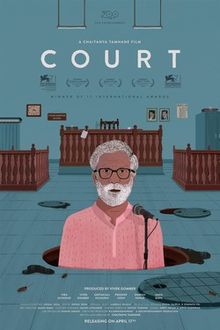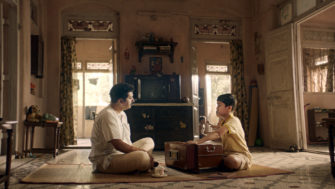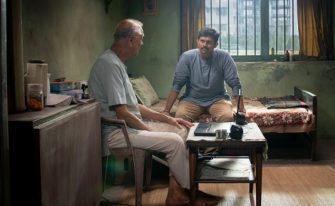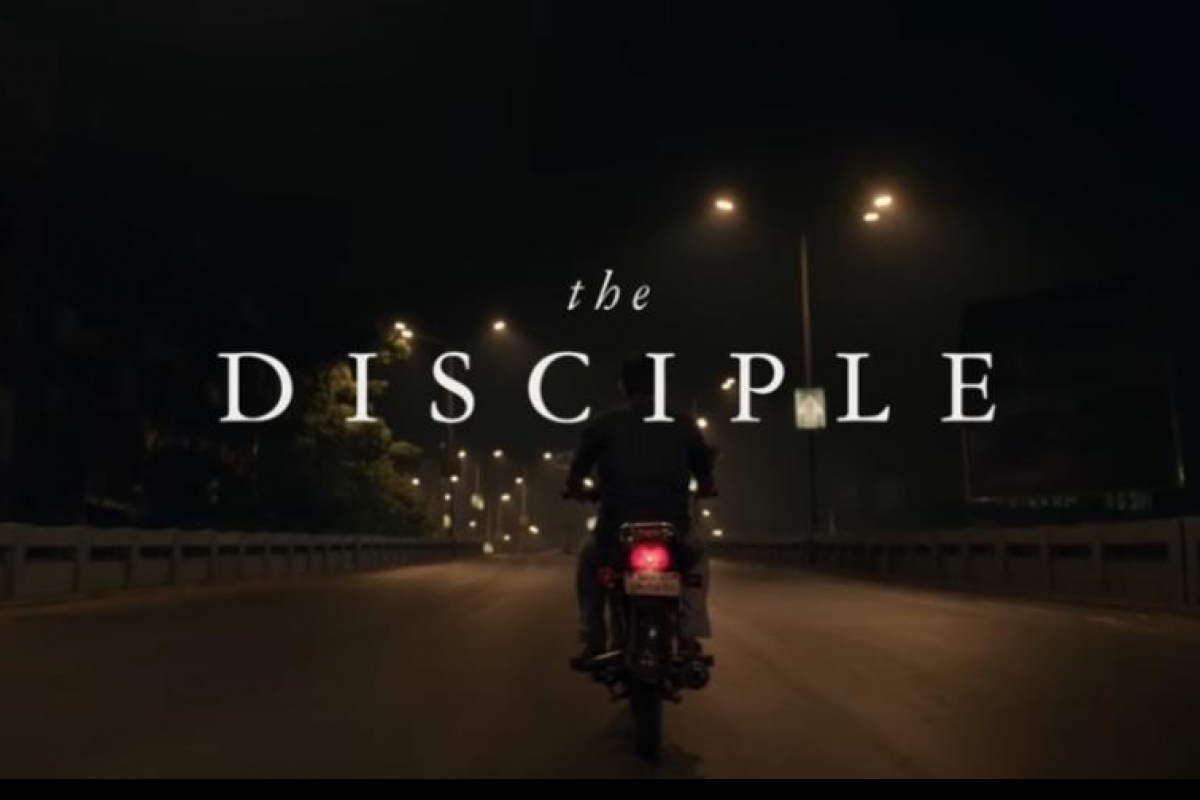
The first memory that the trailer of ‘The Disciple’ evoked was ‘Whiplash.’ I thought the movie is a rehash for an Indianized version. But the brand of Chaitanya Tamhane (Court, 2014) was enough for giving it a try.
Some parallels do exist. The Guruji of ‘The Disciple’ is a hard taskmaster like Fletcher (Whiplash). Both come from the stream that believes saying ‘good job’ to your students is very harmful. Both are bullies in their own style. Flecther is more of the in-your-face kind, whereas Guruji is more soft-spoken. The isolation of the drummer, Andrew, in pursuit of musical greatness, is similar to that of the classical singer Sharad. Both drift away from their families, struggle in social and romantic relationships.
However, the journey of the two characters diverges in one significant way. Andrew finds redemption, with one magical performance at the end of the movie. Whereas Sharad never reaches those heights.
‘The Disciple’ is playing with a much bigger canvas than the pursuit of musical greatness. It is a human story. It merely uses ‘singing’ as a medium to comment on the human condition. I hope it gets recognized for it.
‘The Disciple’ is about the prisons we create for ourselves. Why does Sharad pursue classical singing? In ‘A few good men,’ the prosecuting lawyer taunts Kaffee by saying. “You got bullied into the courtroom by the memory of a dead lawyer.”
Sharad chases singing greatness due to stories woven by his father. Sharad’s father regales him stories of mythical performances of past greats. The joy in the perfection of a sur (soor). Sharad traps himself in the pursuit of that perfection.

It is a prison created by Sharad himself, a prison he struggles against, yet he seems unable to escape it. The Hotel California’ syndrome. The movie dwells deeply into the pseudo elitist world of Indian Classical Singing. A world of the few, wherein the audience is thin, the parameters are vague, fame and money are absent. A world that twists this absence of opulence as virtue and a symbol of purity. A true artist needs to be ascetic, they claim; Hypocrisy at its best. Conveniently forgetting that the celebrated artists of the past, the so-called gharanas, came into prominence due to the lavishness and profligacy of royal durbars. Not surprising, in the land of the golden sparrow of the past, sermons are common on the virtues of poverty.
Sharad is trapped in this ideology, a prisoner of his beliefs. His doubts lay at two levels. He doubts his dogma itself at one level, is there any truth in the mystical nature of that perfect performance? At another level, he doubts himself, is it his lack of talent and ability preventing him from achieving true greatness?

The movie is superbly directed to convey this internal conflict. We have wide shots that slowly zoom to the facial expressions of the characters. Everything is conveyed through expressions. When the winner of a competition is announced, the camera is fixated on Sharad’s face, capturing every twitch of his disappointment. We never see who the winner is; the only person that matters is the loser – Sharad.
All through the movie, we have the voice of a mythical ‘Maai.’ A performer par excellence, whose performance no one has witnessed. She is found only in the narration of others. Sharad’s father, his Guruji, all swear by her greatness, purity, and ultimately her ascetic values. The only proof of her existence are tapes of her interview from 1972. In those tapes, she repeats her values of purity, shunning money and fame, and pursuing singing as a path to God. The narration is akin to somewhat of a cult philosophy. Sharad is her faithful follower. Again kudos to the director; whenever the voice of Maai is heard, Sharad is slow driving through the desolate streets of Mumbai. Nothing happens on the screen, and we automatically tune in to what Maai has to say. (A powerful voice, for those who can understand Marathi)

Sharad, who desires to become Maai’s ultimate follower, struggles with the practicalities of life. However, again the key question is, why does Sharad desire to follow Maai’s path? Evidence around him constantly challenges his beliefs. The sad, desolate suffering of his Guruji in his old age is a visual reminder of the destination of the said path. Most remarkable is the conversation that a twenty-four-year-old Sharad has with a music critic of sorts. The critic pointedly asks, ‘Which artist does not like to showcase their art through a performance?’
Yet, when a young student of the later thirty-six year old Sharad asks permission to join a fusion band performance. Sharad is vigorous in imposing the same beliefs on the hapless teenager. Parallel to this, Sharad is witnessing the journey of a classical singer in a TV contest. She moves away from her origins of simplicity and classical tones to more mainstream and flashy music with her every step. Her final performance is bordering on barroom gaudy. But, she has made her mark, and Sharad hasn’t.
With age, Sharad tries to reconcile. With great reluctance, he donates Maai’s tapes to a museum. At an archive where no one cares who Maai is, at an office where half the staff is asleep snoring. Maai is not on the list of awardees in the database at the archive. Was she really a winner? Who knows, but a middle-aged Sharad wants to offload her. Symbolically offloading her ideology and the burden of her legacy on him. We feel that finally, Sharad is coming out of the prison, embracing practical life.
But, in the end, Sharad proceeds to create a similar mythical legend around his now deceased Guruji. Has he escaped or found a new jail for himself?
Guru and God, Both Stand in front of me
Whom should I bow to..
I surrender to my Guru,
for showing me the way to God..
Beside a well, oh seeker I sowed a tamarind seed
The tree is blooming, With fish all over..
The rabbit turns into a hunter, and prowls in the forest,
He hunts down the deer of attachment..
The bull gives milk, while the cow churns,
Only the rare one eats butter..
Besides the well, Oh Wanderer, A deer got married,
she gave birth to five baby deer..
With the grace of his Guru, Gorakh Says,
One who searches will find,
–Ulatbansi Poem (Gorakhnath Tradition)














Is this a marathi movie ? Oscar aspiring tones ? (since Shwass visited Oscars– we can have our new Jail too)
yes! it is a marathi movie